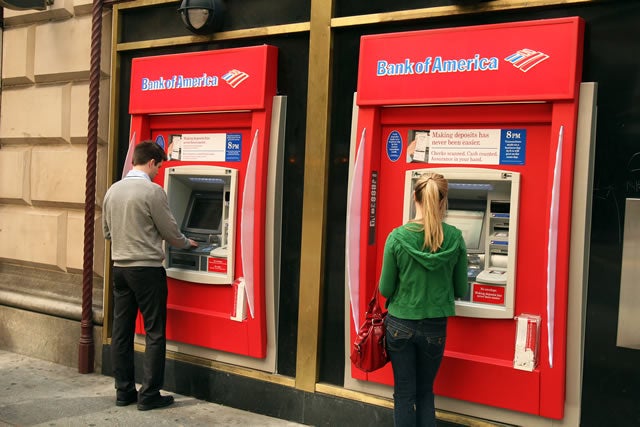As if further evidence actually is needed, Bank of America on Thursday demonstrated yet again how government price controls inevitably harm consumers—and low-income consumers the most.
In this instance, the nation’s largest bank (by assets) announced on Thursday a new $5 monthly fee for use of a debit card. Several other banks are likewise imposing a slew of new fees as a direct result of the deeply flawed Dodd–Frank financial regulation statute.
Among the more detrimental of the law’s provisions is the so-called Durbin Amendment (a la Senator Dick Durbin [D–IL]), which directs the Federal Reserve to regulate the fees that financial institutions may charge retailers to process debit card purchases. The amendment calls for such “interchange” fees to be “reasonable” and “proportional” to the cost of processing debit card transactions—whatever that is.
Following a lobbying frenzy, the Fed settled on a limit of 24 cents per transaction (on average), or 45 percent less than the customary fee. Thus the cap, which takes effect on October 1, will cost banks an estimated $6.6 billion a year in revenue that they say is needed to cover indirect costs related to debit cards, such as fraud and overdraft protection.
Bank of America instituted the new $5 monthly fee in anticipation of a $2 billion annual loss as a result of Durbin. Wells Fargo expects to lose $1 billion, prompting it to adopt a $3 fee for debit cards in some areas. JPMorgan Chase is also rolling out new fees, as is Citibank.
As reported by the Associated Press, smaller banks are following suit: Atlanta-based SunTrust recently instituted a $5 debit card fee, while Regions Financial in Birmingham, Alabama, will begin charging a $4 fee next month. In Texas, International Bancshares has announced last week the closure of 55 branches in grocery stores and the loss of 500 jobs.
Indeed, many of the free services long enjoyed by bank customers—and the source of competition among banks—are disappearing fast as a consequence of Dodd–Frank generally and Durbin in particular. A study from Bankrate.com found that the proportion of free checking accounts (of the non-interest variety) has fallen this year to 45 percent from 65 percent in 2010 and 76 percent two years ago. According to the 2011 Checking Account Survey, the number of free accounts “is likely to drop further as banks and their customers adjust to recent regulatory changes in banking.”
The new fees will hit lower-income families the hardest. That’s because banks often exempt premium accounts from user fees to nurture more profitable customers. Faced with higher fees, some cash-strapped consumers will migrate to credit cards—if they can qualify. More stringent regulations have tightened the availability of credit while also increasing interest rates and fees.
From an economic standpoint, the popularity of debit cards has been a positive development, as noted by Senior Research Fellow David John of The Heritage Foundation:
While credit cards certainly have legitimate uses, millions of Americans have unwittingly found themselves deep in debt from careless or irresponsible credit card use. Many of them ended up in financial difficulties if their incomes dropped because of the recent recession.
Therefore, by increasing the cost of debit cards to consumers, the Durbin amendment makes it harder for consumers to manage their finances and drives them back to credit cards or to stored-value cards.
In typical populist fashion, Senator Durbin sold his amendment as consumer-friendly. But any regulation that increases consumer costs and raises consumer debt is inherently anti-consumer and economically destructive. The Durbin tax should never have been approved, and Congress ought to repeal it.





























